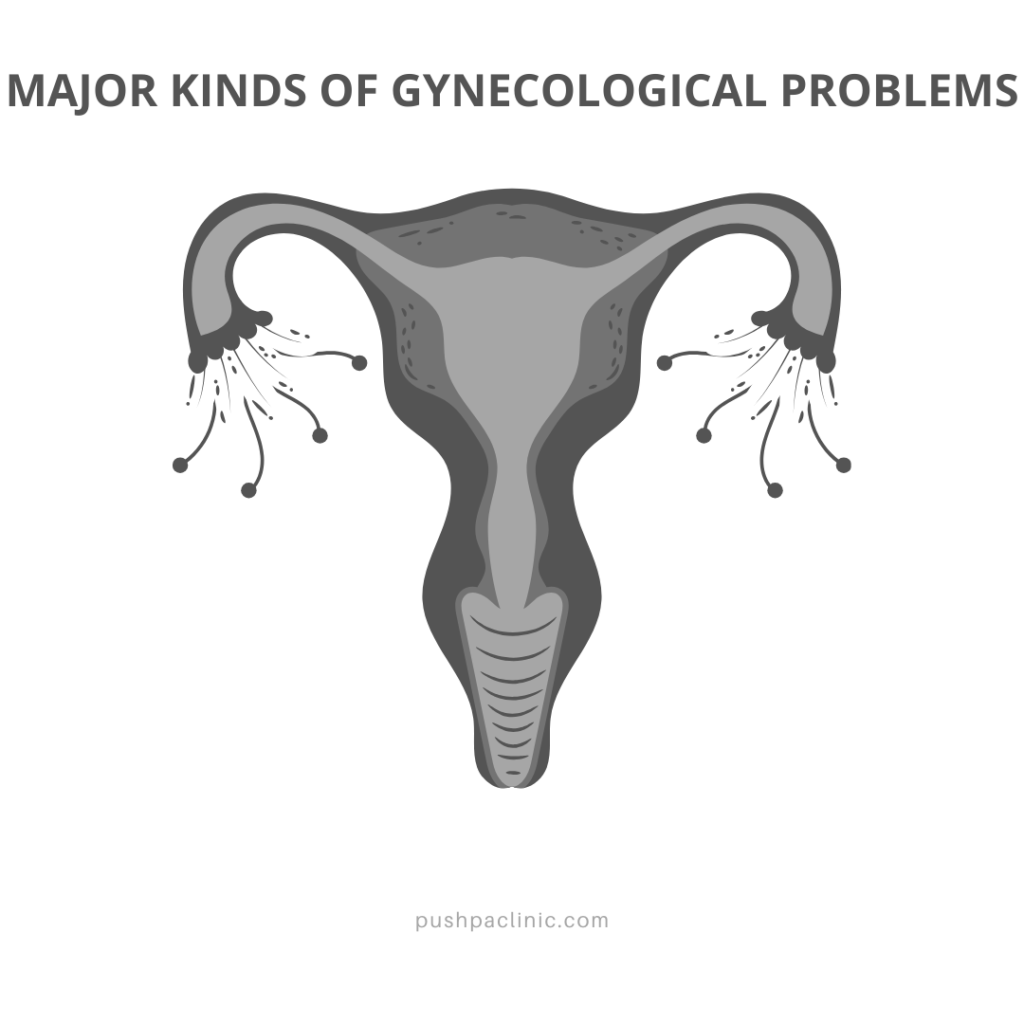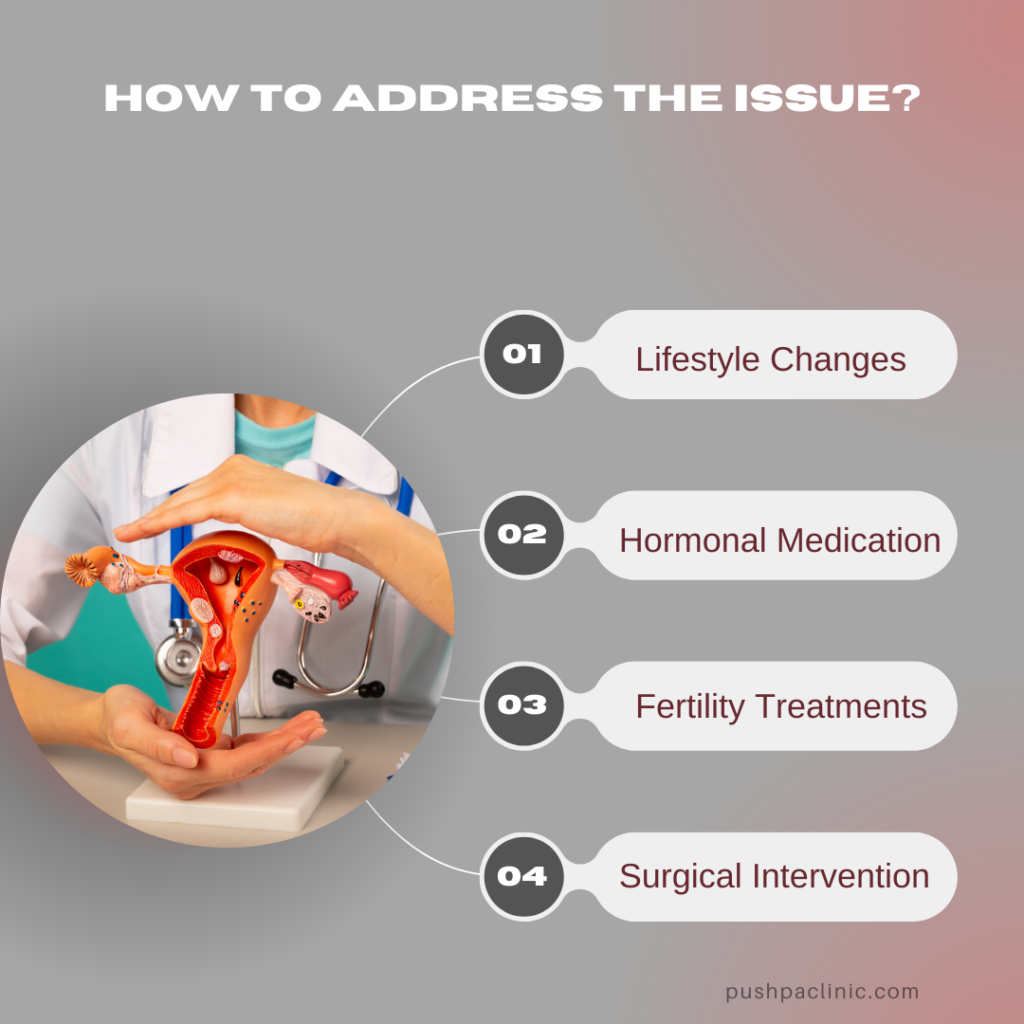Brief Explanation about Gynecological Problems
A medical condition which interferes with the normal activity of the female reproductive system, particularly the breasts, is referred to as a gynecological problem. This group of disorders includes conditions affecting the uterus, ovaries, fallopian tubes, vagina, and vulva. The majority of women will experience gynecological issues at some point in their lives. It could feel uncomfortable, and the discomfort could be ignored as usual considering it occurs throughout the course of your menstrual cycle. The discomfort usually arises in the pelvic region, therefore it might be confused with other illnesses.

Major Kinds of Gynecological Problems
The well known gynecological problems include cervical cancer, endometrial cancer, endometriosis, fibroids, heavy menstrual bleeding, early menopause and ovarian cancer, uterine prolapse and certain vaginal conditions.
- Cervical cancer: Cervical cancer begins in the tissues of the cervix. The cervical region is the bottom, narrow end that forms the uterus (womb). The part of the cervix that joins the uterus and the vagina (birth canal). Cervical cancer typically grows slowly as time passes.
- Endometrial cancer: Cancer that originates in the tissue that lines the lining of the uterus. Cancer of the endometrium is typically detected early because of signs and symptoms, and chances of survival are good.
- Endometriosis: Endometriosis is a disorder whereby tissue comparable to the uterine lining develops outside of the uterus. It may trigger significant abdominal discomfort and make it difficult to become pregnant.
- Fibroids: Muscular tumors called fibroids develop in the uterine wall (womb). Fibroids are usually normally benign (noncancerous). Almost every woman with fibroids experiences symptoms.
- Heavy menstrual bleeding: Heavy bleeding can be caused by hormonal imbalances or uterine diseases. It may also be caused by additional illnesses or problems with bleeding.
- Early menopause and ovarian cancer: Premature menopause occurs when you reach menopause before the age of forty. Ovarian cancer and other cancer treatments can cause early menopause. Instead of a progressive reduction of hormones, the change can be rapid, causing severe menopausal symptoms in some individuals.
- Uterine prolapse: Uterine prolapse occurs when the uterus falls into the vaginal canal as a result of weakening pelvic muscle, tissue, and ligaments.

Diagnosis
The diagnosis of gynecological problems is done based on tests and check-ups for specific problems. These will include the following:
- Physical examination: This will include pelvic examination, physical check up of reproductive organs for any change in appearance. Physical exams including vital signs, body mass index and assessing overall health
- When the doctor treating you notices something, they may recommend diagnostic testing such as a pap smear, an ultrasound test, or other procedures. Yearly pap smears for cancer of the cervical cavity and breast scans for breast abnormalities are two examples of screening procedures that can be utilized for early identification and prevention. Advanced diagnostics include breast biopsies, hysteroscopies, cervical biopsies, pelvic ultrasounds, endometrial biopsy, and a colposcopy.

Understanding the Symptoms of Gynecological Problems
Common signs of gynecological issues include the following:
- Spotting between cycles
- Urinating frequently and urgently, or experiencing a burning sensation while urinating
- Irregular vaginal bleeding.
- Bleeding post menopause
- Discomfort or strain in your pelvic that can be different than menstruation cramps
- Itchiness, burning, redness, inflammation, or pain in the vaginal
- Sores or bumps on the genitals
- Vaginal discharge that has an unpleasant or odd odor or color.
- Higher than usual vaginal discharge

How to Address the Issue?
Efficient gynecologic issue management requires timely diagnosis and proper treatment. Consult a certified gynecologist to discuss individualized treatment options. Common treatments include:
- Lifestyle Changes: Living a healthy lifestyle, which includes regular exercise, a balanced diet, and stress management, can have a good impact on reproductive health.
- Medication: Hormonal medicines, pain killers, and antibiotics are commonly administered to treat a variety of gynecological problems.
- Fertility Treatments: For fertility-related conditions, assisted reproductive technologies (ART), such as in vitro fertilization (IVF), may be prescribed.
- Surgery: Surgical surgery may be advised in cases involving fibroids, endometriosis, or specific problems involving the reproductive organs.

